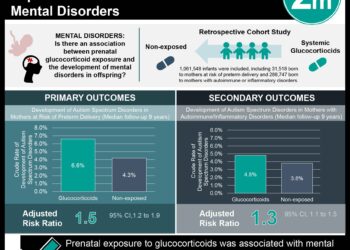Cultural, informational, and financial challenges associated with behavioral health integration
1. Behavioral health integration has had positive effects on a wide variety of practices, but physicians commonly reported frustration with several barriers including differences in communication style, unwieldy electronic health record (EHR) systems, and complex billing procedures.
2. Increased interprofessional training and refinement of existing technology may reduce power differentials and ease the implementation of behavioral health models.
Evidence Rating Level: 4 (Below Average)
Study Rundown: Roughly one-fifth of adults have at least one mental health condition, but many people are unable to obtain effective treatment due to provider inaccessibility and social stigma. One solution to this disparity is the integration of behavioral health into traditional medical care, which may expand access to services, improve responsiveness to patient needs, and reduce healthcare costs. This approach has been supported by policy-makers, insurance providers, and professional associations alike, but fragmentation still persists, with under 50% of primary care providers working in proximity to their behavioral health counterparts. This study was designed to investigate the cause of this stunted dissemination, and the interviewees revealed that the major challenges to implementation they faced included cultural differences between the two types of clinician as well as the lack of information flow due to privacy concerns and EHR limitations. Discussion about the financial effect of integration highlighted another issue; only 10% of practices reported net-positive returns, with the remainder absorbing losses in order to provide comprehensive care. While the practices sampled did not represent the complete scope of potential obstacles, this study demonstrated the possibility of widespread adoption of behavioral health integration models by tailoring overarching guidelines to specific practice needs.
Click here to read the study, published today in Annals of Internal Medicine
Relevant Reading: Integrated Medical-Behavioral Care Compared With Usual Primary Care for Child and Adolescent Behavioral Health
In-Depth [cross-sectional study]: In this qualitative analysis, 47 clinicians or other leaders representing 30 unique practices with behavioral health integration experience were interviewed alongside 20 behavioral health integration experts and 5 vendors of telehealth or technical services. The primary reason many practices proceeded with integration was to address glaring behavioral health shortages. Integration allowed for the immediate establishment of a patient-provider relationship and made it possible to maintain contact over time. Cultural differences were also made apparent, as behavioral health clinicians accustomed to longer visits and lower supervision often had difficulty adjusting to the faster pace of medical clinics. Further, some nonbehavioral health clinicians required persistent reminder of the importance of mental health. An interviewed psychologist reported that this hierarchy reduced effectiveness because “you don’t expect that it’s really going to change anything.” The lack of crosstalk due to restrictive or esoteric EHRs also drew the ire of various providers, one of whom complained, “[the licensed clinical social worker (LCSW)] is down the hall and I don’t know what’s going on with my patients,” speaking to the gap between mere proximity and collaboration. Reimbursement was also found to be highly variable, with many practices relying on internal organizational support and grants to offset the added costs of behavioral health integration. Some practices elected to utilize a fee-for-service framework, but the majority opted for alternative payment models, citing higher quality of care in keeping with the philosophy behind the movement.
Image: PD
©2020 2 Minute Medicine, Inc. All rights reserved. No works may be reproduced without expressed written consent from 2 Minute Medicine, Inc. Inquire about licensing here. No article should be construed as medical advice and is not intended as such by the authors or by 2 Minute Medicine, Inc.


![2 Minute Medicine: AI Roundup [May 2nd, 2025]](https://www.2minutemedicine.com/wp-content/uploads/2025/05/Untitled-design-350x250.png)




